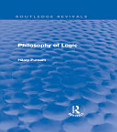Naturalism, Realism, and Normativity
Apr 2016 · Harvard University Press
Ebook
246
Pages
reportRatings and reviews aren’t verified Learn More
About this ebook
Hilary Putnam’s ever-evolving philosophical oeuvre has been called “the history of recent philosophy in outline”—an intellectual achievement, nearly seventy years in the making, that has shaped disciplinary fields from epistemology to ethics, metaphysics to the philosophy of physics, the philosophy of mathematics to the philosophy of mind. Naturalism, Realism, and Normativity offers new avenues into the thought of one of the most influential minds in contemporary analytic philosophy.
The essays collected here cover a range of interconnected topics including naturalism, commonsense and scientific realism, ethics, perception, language and linguistics, and skepticism. Aptly illustrating Putnam’s willingness to revisit and revise past arguments, they contain important new insights and freshly illuminate formulations that will be familiar to students of his work: his rejection of the idea that an absolute conception of the world is obtainable; his criticism of a nihilistic view of ethics that claims to be scientifically based; his pathbreaking distinction between sensations and apperceptions; and his use of externalist semantics to invalidate certain forms of skepticism. Above all, Naturalism, Realism, and Normativity reflects Putnam’s thinking on how to articulate a theory of naturalism which acknowledges that normative phenomena form an ineluctable part of human experience, thereby reconciling scientific and humanistic views of the world that have long appeared incompatible.
The essays collected here cover a range of interconnected topics including naturalism, commonsense and scientific realism, ethics, perception, language and linguistics, and skepticism. Aptly illustrating Putnam’s willingness to revisit and revise past arguments, they contain important new insights and freshly illuminate formulations that will be familiar to students of his work: his rejection of the idea that an absolute conception of the world is obtainable; his criticism of a nihilistic view of ethics that claims to be scientifically based; his pathbreaking distinction between sensations and apperceptions; and his use of externalist semantics to invalidate certain forms of skepticism. Above all, Naturalism, Realism, and Normativity reflects Putnam’s thinking on how to articulate a theory of naturalism which acknowledges that normative phenomena form an ineluctable part of human experience, thereby reconciling scientific and humanistic views of the world that have long appeared incompatible.
Rate this ebook
Tell us what you think.
Reading information
Smartphones and tablets
Install the Google Play Books app for Android and iPad/iPhone. It syncs automatically with your account and allows you to read online or offline wherever you are.
Laptops and computers
You can listen to audiobooks purchased on Google Play using your computer's web browser.
eReaders and other devices
To read on e-ink devices like Kobo eReaders, you'll need to download a file and transfer it to your device. Follow the detailed Help Center instructions to transfer the files to supported eReaders.







